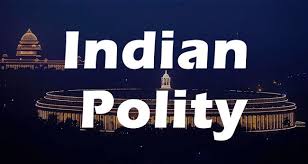Indian Polity Notes- Popular Movements-For W.B.C.S Examination
Introduction
- During the 1970s, in some parts of Uttarakhand, villagers protested against the practices of commercial logging that the government had permitted.Continue Reading Indian Polity Notes- Popular Movements-For W.B.C.S Examination.
- To protect the trees, the villagers used a novel tactic. They used to hug the trees to prevent them from being cut down; this method became popular as ‘Chipko Movement’ (as shown in the image given below).
- The movement took up economic issues of landless forest workers and asked for guarantees of a minimum wage.
- The movement achieved a victory when the government issued a ban on cutting of trees in the Himalayan regions for fifteen years, until the green cover was fully restored.
- In spite of the impressive growth in many sectors of the economy in the first twenty years of independence, poverty and inequalities still remain a great problem; probably, because benefits of economic growth did not reach evenly to all sections of the society.
Evolution of Voluntary Organizations
- Many of the politically active groups lost their faith in existing democratic institutions and electoral politics and some groups therefore chose to step outside of party politics and got engage in mass mobilization for registering their protests.
- The middle class young activists launched service organizations and constructive programs among rural poor.
- As these works were voluntary in nature (social work), many of these organizations came to known as voluntary organizations or voluntary sector organizations.
- Since these voluntary organizations decided to remain outside of the politics and do not contest election; hence, they became popular as ‘non-party political formation.’
- Dalit Panthers, a militant organization of the Dalit youth, was formed in Maharashtra in 1972.
- In the post-independence period, Dalit groups were mainly fighting against the perpetual caste based inequalities and material injustices that they faced in spite of constitutional guarantees of equality and justice
- In the 1980s, farmers’ dissension was also rising, which gave birth to farmers’ agitation against the government’s decision (especially increasing the electricity rate).
- The Bharatiya Kisan Union (BKU) was one of the leading organizations (exclusively involved for the farmers’ movement) during the period of eighties.
- Activities conducted by the BKU to pressurize the state through rallies, demonstrations, sit-ins, and jail bharo (courting imprisonment) agitations to get their demands accepted.
- Dissented Fish workers, especially from Kerala, took the main responsibility of mobilizing fellow workers, including women workers from other States.
- When the government’s deep sea fishing policy (1991) that opened up India’s waters to large commercial vessels including those of the multinational fishing companies came into existence, work of the National Fish Workers’ Forum (NFF) consolidated its first legal battle with the Union government successfully.
- Another movement initiated by women was the movement against the sale of liquor/alcohol. Women in Nellore came together in spontaneous local initiatives to protest against arrack and forced closure of the wine shop.
- In the 1988-89, Narmada Bachao Aandolan (NBA), a movement to save the Narmada, opposed the construction of these dams and questioned the nature of ongoing developmental projects in the country.
- NBA continued a sustained agitation for more than twenty years and used every available democratic strategy to put forward its demands.
- The movement for Right to Information (RTI) is commenced in 1990, when a mass-based organization called the Mazdoor Kisan Shakti Sangathan(MKSS) in Rajasthan took the initiative in demanding records of famine relief work and accounts of laborers.
- These movements suggest that the routine functioning of democracy did not have enough space for the voices of these social groups; therefore, the real-life impact of these movements on the nature of public policies seems to be very limited.
Our own publications are available at our webstore (click here).
For Guidance of WBCS (Exe.) Etc. Preliminary , Main Exam and Interview, Study Mat, Mock Test, Guided by WBCS Gr A Officers , Online and Classroom, Call 9674493673, or mail us at – mailus@wbcsmadeeasy.in
Visit our you tube channel WBCSMadeEasy™ You tube Channel
Please subscribe here to get all future updates on this post/page/category/website



 Toll Free 1800 572 9282
Toll Free 1800 572 9282  mailus@wbcsmadeeasy.in
mailus@wbcsmadeeasy.in


















































































































